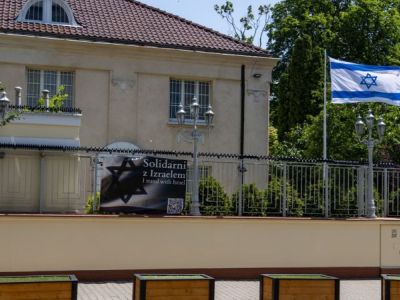Barring last-minute snags, and despite opposition by the two main Christian blocs, former Prime Minister Saad Hariri is set to be designated to form a new government this week, exactly a year after he resigned under the pressure of a nationwide popular uprising that erupted against the worsening economic conditions and the country’s entrenched political elite.
Hariri is assured of gaining the support of a parliamentary majority sufficient to designate him to form a new government during binding parliamentary consultations set for Thursday to pick a new prime minister, despite opposition from the Free Patriotic Movement and the Lebanese Forces -- the two parties with the largest Christian representation in Parliament.
However, the road to forming a small government of nonpartisan specialists to enact urgent reforms as Hariri had pledged in line with the French initiative to rescue the crises-ridden country, would not be smooth as major hurdles lie ahead, particularly in the distribution of key ministries among blocs supporting Hariri’s nomination, a political source familiar with the matter said.
The distribution of the four sovereign ministries -- Finance, Defense, Interior and Foreign Affairs -- in addition to the allocation of the other coveted ministerial portfolios such as the Energy, Telecommunications, Justice and Public Works among rival factions had delayed Cabinet formations for months in the past.
Although the FPM and the LF have said that they will not participate in the next government, the allocation of ministerial portfolios to the Christian sect, including the president’s Christian share, presents the premier-designate with a tough challenge, the source said.
After postponing them last week due to a lack of strong Christian support for Hariri’s nomination for the premiership, President Michel Aoun is slated Thursday to hold daylong binding consultations at Baabda Palace with parliamentary blocs to poll them on their choice for a new prime minister.
Aoun is set to deliver a televised speech Wednesday noon to discuss latest developments, his office said.
A source at Baabda Palace Tuesday said the binding consultations would proceed as scheduled, ruling out any new postponement. “The consultations will take place as planned on Thursday and all indications show that Prime Minister Saad Hariri will be designated to form a new government in the absence of a serious Sunni candidate,” the source told The Daily Star.
Despite opposition by the FPM and the LF to Hariri’s nomination and the resignation of eight MPs, a political source familiar with the matter said the head of the Future Movement was expected to muster the support of at least 65 lawmakers in the now 120-member Parliament.
In a setback to the Cabinet formation efforts, General Security chief Abbas Ibrahim has tested positive for COVID-19 in the United States, forcing him to delay his return from talks in Washington and to cancel scheduled meetings with French officials in Paris on the Lebanese crisis.
Ibrahim is in good health, the directorate of General Security said in a tweet Monday.
Ibrahim, who had mediated among rival parties, especially during Cabinet crises, was scheduled to hold talks in Paris ahead of the parliamentary consultations with French intelligence chief Bernard Emie about the formation of a new government to cope with Lebanon's crippling economic crisis. Emie heads a French cell tasked with following up on the implementation of a French economic blueprint to lift Lebanon out of its worst economic and financial crunch since the 1975-90 Civil War.
Thursday’s binding consultations come nearly a month after premier-designate Mustapha Adib stepped down in a move that has thrown the country into further uncertainty and cast gloom on the French initiative to save Lebanon.
The two main Shiite groups, the Amal Movement and Hezbollah, had been largely blamed for stalling Adib’s Cabinet formation efforts. Adib stepped aside less than a month after his designation after his attempts to form a small 14-member Cabinet of nonpartisan experts to implement key reforms foundered over insistence by the Amal Movement and Hezbollah on retaining hold of the Finance Ministry. The two groups also insisted on naming Shiite members of the new Cabinet, which ran contrary to Adib’s intention to select members of his Cabinet by himself.
In a TV interview last week, Hariri reiterated his position that he would agree to allocating the Finance Ministry to the Shiite sect only for one time, while supporting a rotation of the sectarian leadership of the four sovereign ministries.
Lebanon has been left without a fully functioning government since caretaker Prime Minister Hassan Diab submitted his Cabinet’s resignation on Aug. 10 over the deadly explosion that devastated Beirut Port.
Hariri’s government resigned almost two weeks after nationwide protests rocked Lebanon on Oct. 17, 2019, demanding, among other things, the overhaul of the country’s sectarian-based ruling system and the ouster of the political elite accused of corruption, mismanagement and waste of public funds.
In addition to the Future Movement’s 19-member parliamentary bloc, Hariri’s candidacy for the premiership will be supported by the Amal Movement and Hezbollah, both of which have 30 MPs, in addition to their allies, the Marada Movement and the Syrian Social National Party. The Progressive Socialist Party’s seven-member bloc, former premier Najib Mikati’s four-member bloc, the Tashnag party bloc with three MPs, and a number of independent lawmakers are expected to nominate Hariri for the job.
The Consultative Gathering, a bloc of six Sunni MPs not affiliated with the Future Movement, said Tuesday it would not nominate Hariri for the premiership.
“Amid the waste of time and the rescue opportunities that are happening and if the international circumstances will lead to passing [Hariri’s] designation Thursday, the [Cabinet] formation will encounter obstacles and crises,” said a statement issued after the bloc’s meeting. “Therefore, the Consultative Gathering will not be a partner in this political mess and ... will not nominate the sole candidate who has designated himself by himself,” the statement added, referring to Hariri.
LF leader Samir Geagea, whose party’s parliamentary Strong Republic bloc has the second-largest Christian bloc with 15 MPs, reiterated Tuesday that the bloc would not nominate Hariri or anyone for the premiership.
“What prompted us not to nominate Prime Minister Hariri [for the premiership] is that we don’t believe at any moment that it is possible to reach any results with this ruling trio,” Geagea said in a videoed statement, referring to the FPM, Hezbollah and the Amal Movement.
He said the decision not to nominate Hariri was linked to the LF decision not to enter into any joint initiative with the ruling trio, the FPM, Hezbollah and the Amal Movement.
“It is known that the core of the presence of any government to be formed today must be [implementing] reforms. Therefore, what reforms will be implemented with the presence of the abovementioned trio in the government?” Geagea asked.
This article has been adapted from its original source.










